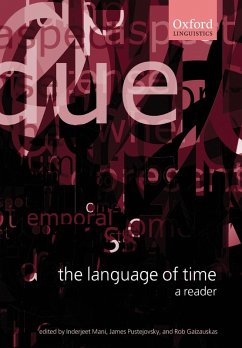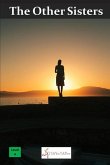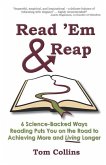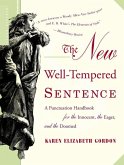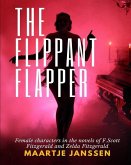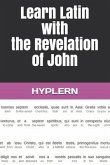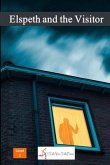Inderjeet Mani / James Pustejovsky / Robert Gaizauskas (eds.)
The Language of Time
A Reader
Herausgeber: Mani, Inderjeet; Gaizauskas, Robert; Pustejovsky, James
Inderjeet Mani / James Pustejovsky / Robert Gaizauskas (eds.)
The Language of Time
A Reader
Herausgeber: Mani, Inderjeet; Gaizauskas, Robert; Pustejovsky, James
- Broschiertes Buch
- Merkliste
- Auf die Merkliste
- Bewerten Bewerten
- Teilen
- Produkt teilen
- Produkterinnerung
- Produkterinnerung
This reader collects and introduces important work in linguistics, computer science, artificial intelligence, and computational linguistics on the use of linguistic devices in natural languages to situate events in time: whether they are past, present, or future; whether they are real or hypothetical; when an event might have occurred, and how long it could have lasted. Clear, self-contained editorial introductions to each area provide the necessary technical background for the non-specialist, explaining the underlying connections across disciplines.
Andere Kunden interessierten sich auch für
![The Other Sisters The Other Sisters]() I Talk You Talk PressThe Other Sisters11,99 €
I Talk You Talk PressThe Other Sisters11,99 €![Read 'Em & Reap: 6 Science-Backed Ways Reading Puts You on the Road to Achieving More and Living Longer Read 'Em & Reap: 6 Science-Backed Ways Reading Puts You on the Road to Achieving More and Living Longer]() Tom CollinsRead 'Em & Reap: 6 Science-Backed Ways Reading Puts You on the Road to Achieving More and Living Longer22,99 €
Tom CollinsRead 'Em & Reap: 6 Science-Backed Ways Reading Puts You on the Road to Achieving More and Living Longer22,99 €![The New Well-Tempered Sentence The New Well-Tempered Sentence]() Karen Elizabeth GordonThe New Well-Tempered Sentence17,99 €
Karen Elizabeth GordonThe New Well-Tempered Sentence17,99 €![Saori and the Storm Saori and the Storm]() I Talk You Talk PressSaori and the Storm11,99 €
I Talk You Talk PressSaori and the Storm11,99 €![The Flippant Flapper: Female characters in the novvels of F.Scott Fitzgerald and Zelda Fitzgerald The Flippant Flapper: Female characters in the novvels of F.Scott Fitzgerald and Zelda Fitzgerald]() Maartje JanssenThe Flippant Flapper: Female characters in the novvels of F.Scott Fitzgerald and Zelda Fitzgerald19,99 €
Maartje JanssenThe Flippant Flapper: Female characters in the novvels of F.Scott Fitzgerald and Zelda Fitzgerald19,99 €![Learn Latin with the Revelation of John: Interlinear Latin to English Learn Latin with the Revelation of John: Interlinear Latin to English]() Andrés CarvajalLearn Latin with the Revelation of John: Interlinear Latin to English10,99 €
Andrés CarvajalLearn Latin with the Revelation of John: Interlinear Latin to English10,99 €![Elspeth and the Visitor Elspeth and the Visitor]() I Talk You Talk PressElspeth and the Visitor11,99 €
I Talk You Talk PressElspeth and the Visitor11,99 €-
-
-
This reader collects and introduces important work in linguistics, computer science, artificial intelligence, and computational linguistics on the use of linguistic devices in natural languages to situate events in time: whether they are past, present, or future; whether they are real or hypothetical; when an event might have occurred, and how long it could have lasted. Clear, self-contained editorial introductions to each area provide the necessary technical background for the non-specialist, explaining the underlying connections across disciplines.
Hinweis: Dieser Artikel kann nur an eine deutsche Lieferadresse ausgeliefert werden.
Hinweis: Dieser Artikel kann nur an eine deutsche Lieferadresse ausgeliefert werden.
Produktdetails
- Produktdetails
- Verlag: OUP Oxford
- Seitenzahl: 604
- Erscheinungstermin: 1. Mai 2005
- Englisch
- Abmessung: 244mm x 170mm x 32mm
- Gewicht: 1027g
- ISBN-13: 9780199268542
- ISBN-10: 0199268541
- Artikelnr.: 21809413
- Herstellerkennzeichnung
- Books on Demand GmbH
- In de Tarpen 42
- 22848 Norderstedt
- info@bod.de
- 040 53433511
- Verlag: OUP Oxford
- Seitenzahl: 604
- Erscheinungstermin: 1. Mai 2005
- Englisch
- Abmessung: 244mm x 170mm x 32mm
- Gewicht: 1027g
- ISBN-13: 9780199268542
- ISBN-10: 0199268541
- Artikelnr.: 21809413
- Herstellerkennzeichnung
- Books on Demand GmbH
- In de Tarpen 42
- 22848 Norderstedt
- info@bod.de
- 040 53433511
Inderjeet Mani is Associate Professor of Linguistics at Georgetown University, where he chairs the program in Computational Linguistics. He works on the computer understanding of temporal narrative and on ontologies for natural language processing. His work on automatic summarization has included new summarization methods as well as evaluation techniques, while his research on temporal information extraction has led to the development of taggers for temporal expressions in various languages. He has served on the Editorial Board of the journal Computational Linguistics (2002-4), and has published more than fifty scientific papers and two books: Automatic Summarization (2001) and the co-edited volume Advances in Automatic Text Summarization (1999). James Pustejovsky is Professor of Computer Science and Director of the Laboratory for Linguistics and Computation at Brandeis University. His research focuses on the areas of computational and theoretical models of lexical semantics, temporal reasoning, knowledge representation, and information extraction and retrieval in bioinformatics. His books include The Generative Lexicon (1995), Meaning in Context (2005), and the edited volumes Lexical Semantics and Knowledge Representation (1992 with Sabine Bergler), Semantics and the Lexicon (1993); Lexical Semantics and the Problem of Polysemy (1997 with Bran Boguraev), and Events as Grammatical Objects (2000 with Carol Tenny). Robert Gaizauskas is Professor of Computer Science at the University of Sheffield. His research interests lie in applied natural language processing, especially information extraction and retrieval, both from newswire text and from scientific writing, particularly medical and biological text. He also works on automatic question answering and summarization, on the extraction of temporal information from texts and has an on-going interest in evaluation of language technology. He has published over 80 papers in peer-reviewed journals and conference proceedings.
* Part 1: Tense, Aspect, and Event Structure
* 1: Z. Vendler: Verbs and Times
* 2: James Pustejovsky: The Syntax of Event Structure
* 3: Emmon Bach: The Algebra of Events
* 4: Hans Reichenbach: The Tense of Verbs
* 5: A.N. Prior: Tense Logic and the Logic of Earlier and Later
* 6: Marc Moens and Mark Steedman: Temporal Ontology and Temporal
Reference
* 7: Bonnie J. Door and Mari Broman Olsen: Deriving Verbal and
Compositional Lexical Aspect for NLP Applications
* 8: Rebecca J. Passonneau: A Computational Model of the Semantics of
Tense and Aspect
* Part II: Temporal Reasoning
* 9: Drew McDermot: A Temporal Logic for Reasoning About Processes and
Plans
* 10: Robert Kowalski and Marek Sergot: A Logic-Based Calculus of
Events
* 11: Luca Chittaro and Carlo Combi: Extending the Event Calculus with
Temporal Granularity and Indeterminacy
* 12: James F. Allen: Towards a General Theory of Action and Time
* 13: Antony Galton: A Critical Examination of Allen's Theory of Action
and Time
* 14: Jerry Hobbs and James Pustejovsky: Annotating and Reasoning About
Time and Events
* Part III: Temporal Structure of Discourse
* 15: David R. Dowty: The Effects of Aspectual Class on the Temporal
Structure of Discourse: Semantics or Pragmatics?
* 16: Alex Lascarides and Nicholas Asher: Temporal Relations, Discourse
Structure, and Commonsense Entailment
* 17: Allan Bell: News Stories as Narratives
* 18: Bonnie Lynn Webber: Tense as Discourse Anaphor
* 19: Fei Song and Robin Cohen: Tense Interpretation in the Context of
Narrative
* 20: Janyce Wiebe, Tom O'Hara, Thorsten Ohrstrom-Sandgren, and K. J.
McKeever: An Empirical Approach to Temporal Reference Resolution
* 21: Chung Hee Hwang and Lenhart K. Schubert: Tense Trees as the Fine
Structure of Discourse
* 22: Janet Hitzeman, Marc Moens, and Claire Grover: Algorithms for
Analyzing the Temporal Structure of Discourse
* Part IV: Temporal Annotation
* 23: George Wilson, Inderjeet Mani, Beth Sundheim, and Lisa Ferro: A
Multilingual Approach to Annotating and Extracting Temporal
Information
* 24: Graham Katz and Fabrizio Arosio: The Annotation of Temporal
Information in Natural Language Sentences
* 25: Elena Filatove and Eduard Hovy: Assigning Time-Stamps to
Event-Clauses
* 26: Franck Schilder and Christopher Habel: From Temporal Expressions
to Temporal Information: Semantic Tagging of News Messages
* 27: James Pustejovsky, Robert Ingria, Roser Sauri, Jose Castano,
Jessica Littman, Robert Gaizauskas, Andrea Setzer, Graham Katz, and
Inderjeet Mani: The Specification Language TimeML
* 28: Wenjie Li, Kam-Fai Wong, and Chunfa Yuan: A Model for Processing
Temporal References in Chinese
* 29: Andrea Setzer, Robert Gaizauskas, and Mark Hepple: Using Semantic
Inference for Temporal Annotation Comparison
* Index
* 1: Z. Vendler: Verbs and Times
* 2: James Pustejovsky: The Syntax of Event Structure
* 3: Emmon Bach: The Algebra of Events
* 4: Hans Reichenbach: The Tense of Verbs
* 5: A.N. Prior: Tense Logic and the Logic of Earlier and Later
* 6: Marc Moens and Mark Steedman: Temporal Ontology and Temporal
Reference
* 7: Bonnie J. Door and Mari Broman Olsen: Deriving Verbal and
Compositional Lexical Aspect for NLP Applications
* 8: Rebecca J. Passonneau: A Computational Model of the Semantics of
Tense and Aspect
* Part II: Temporal Reasoning
* 9: Drew McDermot: A Temporal Logic for Reasoning About Processes and
Plans
* 10: Robert Kowalski and Marek Sergot: A Logic-Based Calculus of
Events
* 11: Luca Chittaro and Carlo Combi: Extending the Event Calculus with
Temporal Granularity and Indeterminacy
* 12: James F. Allen: Towards a General Theory of Action and Time
* 13: Antony Galton: A Critical Examination of Allen's Theory of Action
and Time
* 14: Jerry Hobbs and James Pustejovsky: Annotating and Reasoning About
Time and Events
* Part III: Temporal Structure of Discourse
* 15: David R. Dowty: The Effects of Aspectual Class on the Temporal
Structure of Discourse: Semantics or Pragmatics?
* 16: Alex Lascarides and Nicholas Asher: Temporal Relations, Discourse
Structure, and Commonsense Entailment
* 17: Allan Bell: News Stories as Narratives
* 18: Bonnie Lynn Webber: Tense as Discourse Anaphor
* 19: Fei Song and Robin Cohen: Tense Interpretation in the Context of
Narrative
* 20: Janyce Wiebe, Tom O'Hara, Thorsten Ohrstrom-Sandgren, and K. J.
McKeever: An Empirical Approach to Temporal Reference Resolution
* 21: Chung Hee Hwang and Lenhart K. Schubert: Tense Trees as the Fine
Structure of Discourse
* 22: Janet Hitzeman, Marc Moens, and Claire Grover: Algorithms for
Analyzing the Temporal Structure of Discourse
* Part IV: Temporal Annotation
* 23: George Wilson, Inderjeet Mani, Beth Sundheim, and Lisa Ferro: A
Multilingual Approach to Annotating and Extracting Temporal
Information
* 24: Graham Katz and Fabrizio Arosio: The Annotation of Temporal
Information in Natural Language Sentences
* 25: Elena Filatove and Eduard Hovy: Assigning Time-Stamps to
Event-Clauses
* 26: Franck Schilder and Christopher Habel: From Temporal Expressions
to Temporal Information: Semantic Tagging of News Messages
* 27: James Pustejovsky, Robert Ingria, Roser Sauri, Jose Castano,
Jessica Littman, Robert Gaizauskas, Andrea Setzer, Graham Katz, and
Inderjeet Mani: The Specification Language TimeML
* 28: Wenjie Li, Kam-Fai Wong, and Chunfa Yuan: A Model for Processing
Temporal References in Chinese
* 29: Andrea Setzer, Robert Gaizauskas, and Mark Hepple: Using Semantic
Inference for Temporal Annotation Comparison
* Index
* Part 1: Tense, Aspect, and Event Structure
* 1: Z. Vendler: Verbs and Times
* 2: James Pustejovsky: The Syntax of Event Structure
* 3: Emmon Bach: The Algebra of Events
* 4: Hans Reichenbach: The Tense of Verbs
* 5: A.N. Prior: Tense Logic and the Logic of Earlier and Later
* 6: Marc Moens and Mark Steedman: Temporal Ontology and Temporal
Reference
* 7: Bonnie J. Door and Mari Broman Olsen: Deriving Verbal and
Compositional Lexical Aspect for NLP Applications
* 8: Rebecca J. Passonneau: A Computational Model of the Semantics of
Tense and Aspect
* Part II: Temporal Reasoning
* 9: Drew McDermot: A Temporal Logic for Reasoning About Processes and
Plans
* 10: Robert Kowalski and Marek Sergot: A Logic-Based Calculus of
Events
* 11: Luca Chittaro and Carlo Combi: Extending the Event Calculus with
Temporal Granularity and Indeterminacy
* 12: James F. Allen: Towards a General Theory of Action and Time
* 13: Antony Galton: A Critical Examination of Allen's Theory of Action
and Time
* 14: Jerry Hobbs and James Pustejovsky: Annotating and Reasoning About
Time and Events
* Part III: Temporal Structure of Discourse
* 15: David R. Dowty: The Effects of Aspectual Class on the Temporal
Structure of Discourse: Semantics or Pragmatics?
* 16: Alex Lascarides and Nicholas Asher: Temporal Relations, Discourse
Structure, and Commonsense Entailment
* 17: Allan Bell: News Stories as Narratives
* 18: Bonnie Lynn Webber: Tense as Discourse Anaphor
* 19: Fei Song and Robin Cohen: Tense Interpretation in the Context of
Narrative
* 20: Janyce Wiebe, Tom O'Hara, Thorsten Ohrstrom-Sandgren, and K. J.
McKeever: An Empirical Approach to Temporal Reference Resolution
* 21: Chung Hee Hwang and Lenhart K. Schubert: Tense Trees as the Fine
Structure of Discourse
* 22: Janet Hitzeman, Marc Moens, and Claire Grover: Algorithms for
Analyzing the Temporal Structure of Discourse
* Part IV: Temporal Annotation
* 23: George Wilson, Inderjeet Mani, Beth Sundheim, and Lisa Ferro: A
Multilingual Approach to Annotating and Extracting Temporal
Information
* 24: Graham Katz and Fabrizio Arosio: The Annotation of Temporal
Information in Natural Language Sentences
* 25: Elena Filatove and Eduard Hovy: Assigning Time-Stamps to
Event-Clauses
* 26: Franck Schilder and Christopher Habel: From Temporal Expressions
to Temporal Information: Semantic Tagging of News Messages
* 27: James Pustejovsky, Robert Ingria, Roser Sauri, Jose Castano,
Jessica Littman, Robert Gaizauskas, Andrea Setzer, Graham Katz, and
Inderjeet Mani: The Specification Language TimeML
* 28: Wenjie Li, Kam-Fai Wong, and Chunfa Yuan: A Model for Processing
Temporal References in Chinese
* 29: Andrea Setzer, Robert Gaizauskas, and Mark Hepple: Using Semantic
Inference for Temporal Annotation Comparison
* Index
* 1: Z. Vendler: Verbs and Times
* 2: James Pustejovsky: The Syntax of Event Structure
* 3: Emmon Bach: The Algebra of Events
* 4: Hans Reichenbach: The Tense of Verbs
* 5: A.N. Prior: Tense Logic and the Logic of Earlier and Later
* 6: Marc Moens and Mark Steedman: Temporal Ontology and Temporal
Reference
* 7: Bonnie J. Door and Mari Broman Olsen: Deriving Verbal and
Compositional Lexical Aspect for NLP Applications
* 8: Rebecca J. Passonneau: A Computational Model of the Semantics of
Tense and Aspect
* Part II: Temporal Reasoning
* 9: Drew McDermot: A Temporal Logic for Reasoning About Processes and
Plans
* 10: Robert Kowalski and Marek Sergot: A Logic-Based Calculus of
Events
* 11: Luca Chittaro and Carlo Combi: Extending the Event Calculus with
Temporal Granularity and Indeterminacy
* 12: James F. Allen: Towards a General Theory of Action and Time
* 13: Antony Galton: A Critical Examination of Allen's Theory of Action
and Time
* 14: Jerry Hobbs and James Pustejovsky: Annotating and Reasoning About
Time and Events
* Part III: Temporal Structure of Discourse
* 15: David R. Dowty: The Effects of Aspectual Class on the Temporal
Structure of Discourse: Semantics or Pragmatics?
* 16: Alex Lascarides and Nicholas Asher: Temporal Relations, Discourse
Structure, and Commonsense Entailment
* 17: Allan Bell: News Stories as Narratives
* 18: Bonnie Lynn Webber: Tense as Discourse Anaphor
* 19: Fei Song and Robin Cohen: Tense Interpretation in the Context of
Narrative
* 20: Janyce Wiebe, Tom O'Hara, Thorsten Ohrstrom-Sandgren, and K. J.
McKeever: An Empirical Approach to Temporal Reference Resolution
* 21: Chung Hee Hwang and Lenhart K. Schubert: Tense Trees as the Fine
Structure of Discourse
* 22: Janet Hitzeman, Marc Moens, and Claire Grover: Algorithms for
Analyzing the Temporal Structure of Discourse
* Part IV: Temporal Annotation
* 23: George Wilson, Inderjeet Mani, Beth Sundheim, and Lisa Ferro: A
Multilingual Approach to Annotating and Extracting Temporal
Information
* 24: Graham Katz and Fabrizio Arosio: The Annotation of Temporal
Information in Natural Language Sentences
* 25: Elena Filatove and Eduard Hovy: Assigning Time-Stamps to
Event-Clauses
* 26: Franck Schilder and Christopher Habel: From Temporal Expressions
to Temporal Information: Semantic Tagging of News Messages
* 27: James Pustejovsky, Robert Ingria, Roser Sauri, Jose Castano,
Jessica Littman, Robert Gaizauskas, Andrea Setzer, Graham Katz, and
Inderjeet Mani: The Specification Language TimeML
* 28: Wenjie Li, Kam-Fai Wong, and Chunfa Yuan: A Model for Processing
Temporal References in Chinese
* 29: Andrea Setzer, Robert Gaizauskas, and Mark Hepple: Using Semantic
Inference for Temporal Annotation Comparison
* Index

